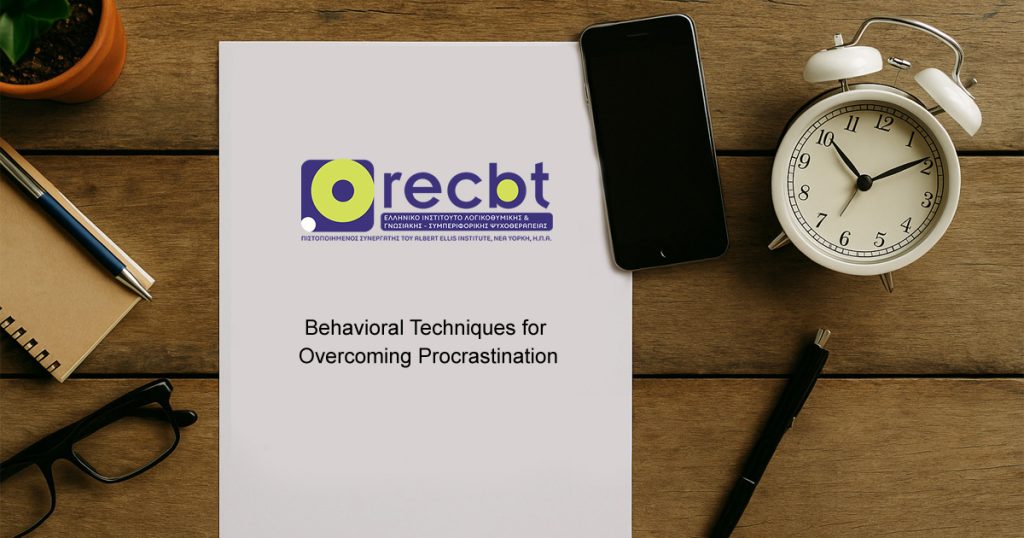Procrastination is one of the most common behaviors that prevent us from achieving our goals. It refers to the delay or postponement of our responsibilities and tasks until the last minute—or even after their deadline. The causes behind this behavior are many: anxiety, task difficulty, lack of motivation, fear of failure, distractibility, perfectionism, or even insufficient information about the task we need to complete.
To effectively manage procrastination, experts suggest a set of cognitive, emotional, and behavioral techniques. Below are some of the most effective behavioral techniques for overcoming procrastination, which can be easily applied in daily life.
Behavioral Techniques for Overcoming Procrastination
Knock Out Technique
The more difficult or boring a task is, the more beneficial it is to do it immediately. By starting with the most demanding part, we reduce stress and increase productivity.
Bits and Pieces Approach
Break your task into smaller, more manageable parts. Start with the first small goal and gradually move on to the next ones. This way, the overall task stops feeling impossible or overly demanding.
Five-Minute Plan
Commit to working on your task for just five minutes. Once you start, give yourself another five minutes—and then another five. This method activates your internal motivation and makes getting started easier.
Cost–Benefit Reflection
Make a list of all the positives that will result once you complete your task, and another list of the negatives that arise when you postpone it. Check these lists regularly to keep your motivation high.
Premack Principle
This technique is based on using a pleasant activity as a reward. Choose something you really enjoy and allow yourself to do it only after completing the task you’ve been avoiding.
Set a Specific Start Time
Schedule a specific time to start your task and set a reminder or alarm. In doing so, you make a commitment to yourself and increase the likelihood of starting on time.
Isolation
Create a quiet, distraction-free environment. Close the door, put your phone on airplane mode, and let others know that you’ll be offline for a while. Concentration is the key to effectiveness.
Conclusion
Dealing with procrastination isn’t easy, but with the right mindset and the consistent application of these techniques, you can significantly improve your time and energy management. Every small victory over delay is a step closer to self-discipline and personal growth.

